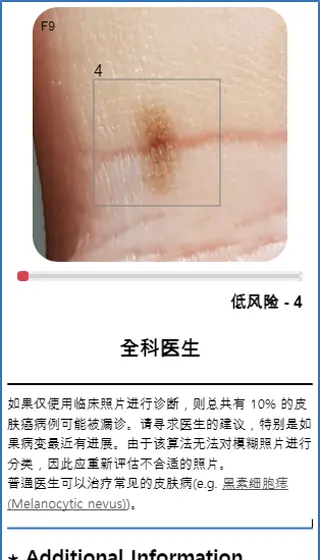
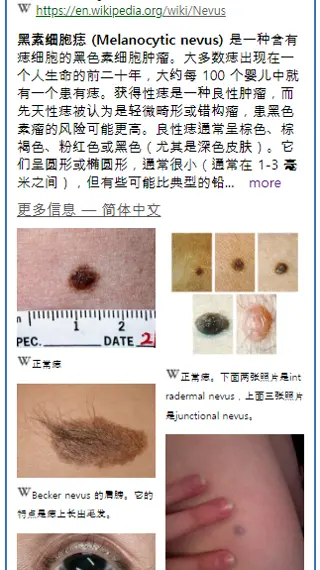
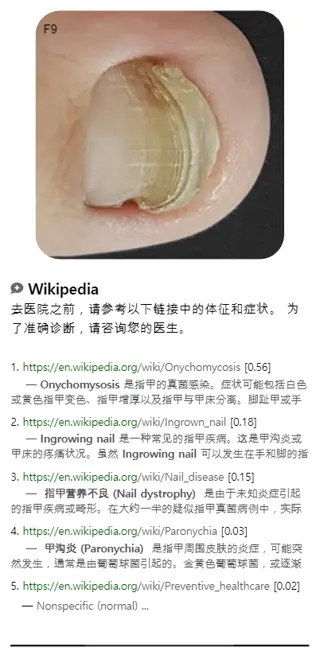
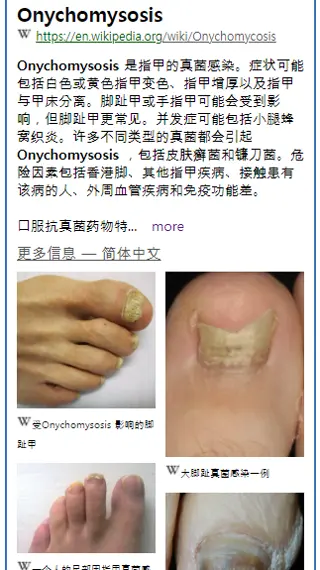
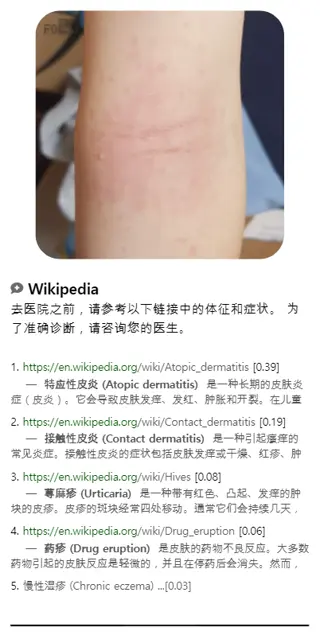

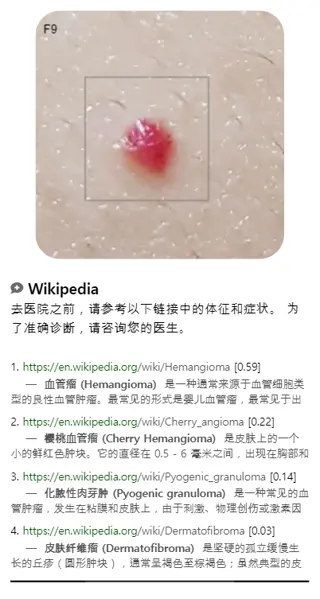

人工智能比搜索引擎提供更准确的皮肤疾病信息。
通过图像搜索提供最相关的皮肤科疾病信息和相关关键词。
由于中国大陆的应用市场被屏蔽,该算法请通过以下方式使用:
1. 访问官网网页版:https://www.modelderm.com
2. 或使用以下 APK 链接直接安装: 下载
人工智能算法会分析所提供的照片,比搜索引擎提供更为准确的个性化医学信息(皮肤癌、皮肤疾病)。 算法性能已通过与国内外多家大学医院的临床研究得到验证,研究结果多次发表在海外皮肤科顶级学术期刊(按引用率排名前 5%)。 大量临床研究在韩国、美国、智利、希腊、意大利和澳大利亚的医疗机构中进行。
它应被用于通过图像搜索获取医学信息等用途,不得作为疾病诊断或类似用途的医疗器械使用。 该算法已获得 CE MDR I 类认证(2021 年 5 月 28 日),但尚未获得 FDA 批准。 虽然标记了 CE,但该应用目前被定位为信息检索工具,而非医疗器械。